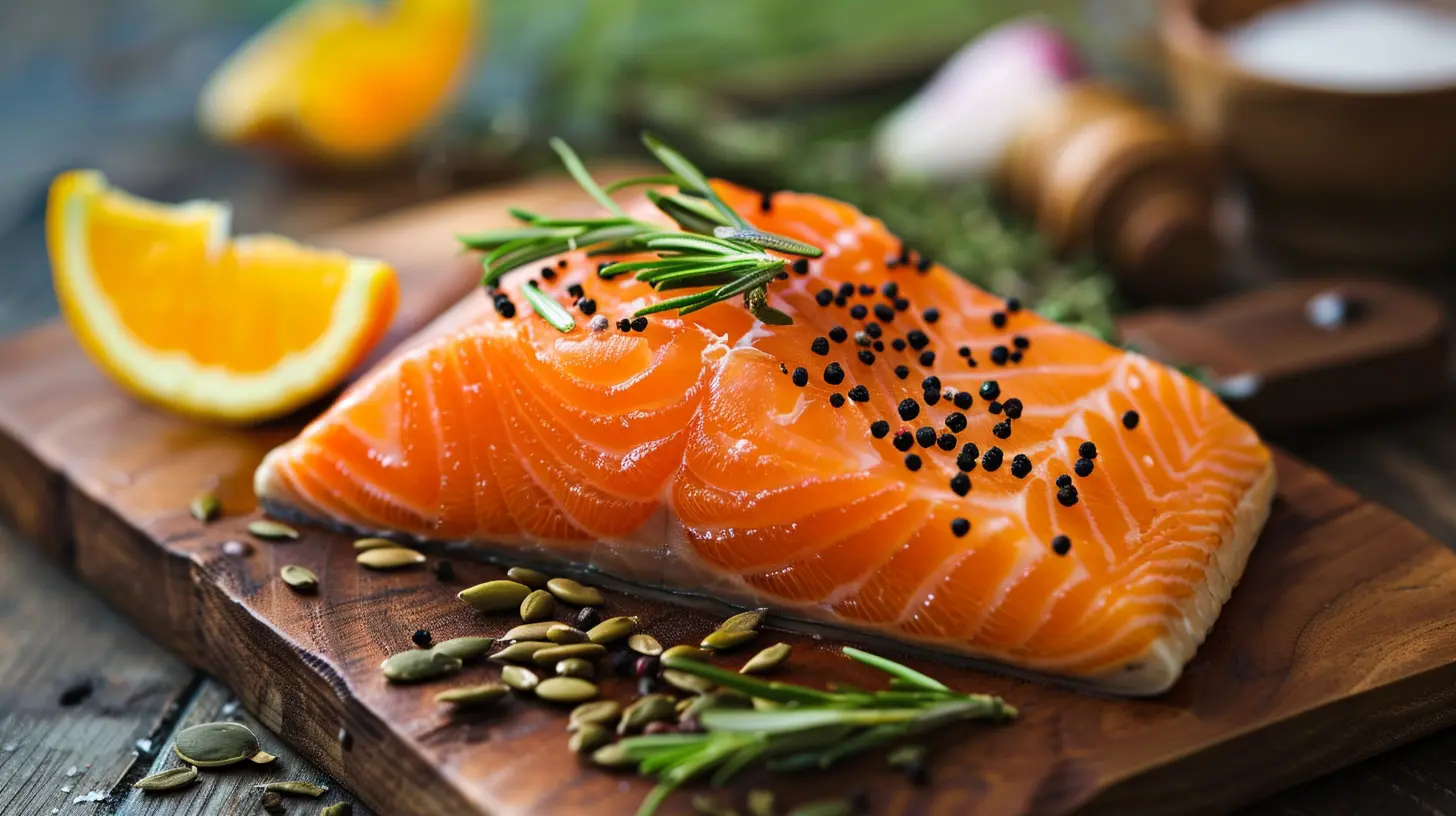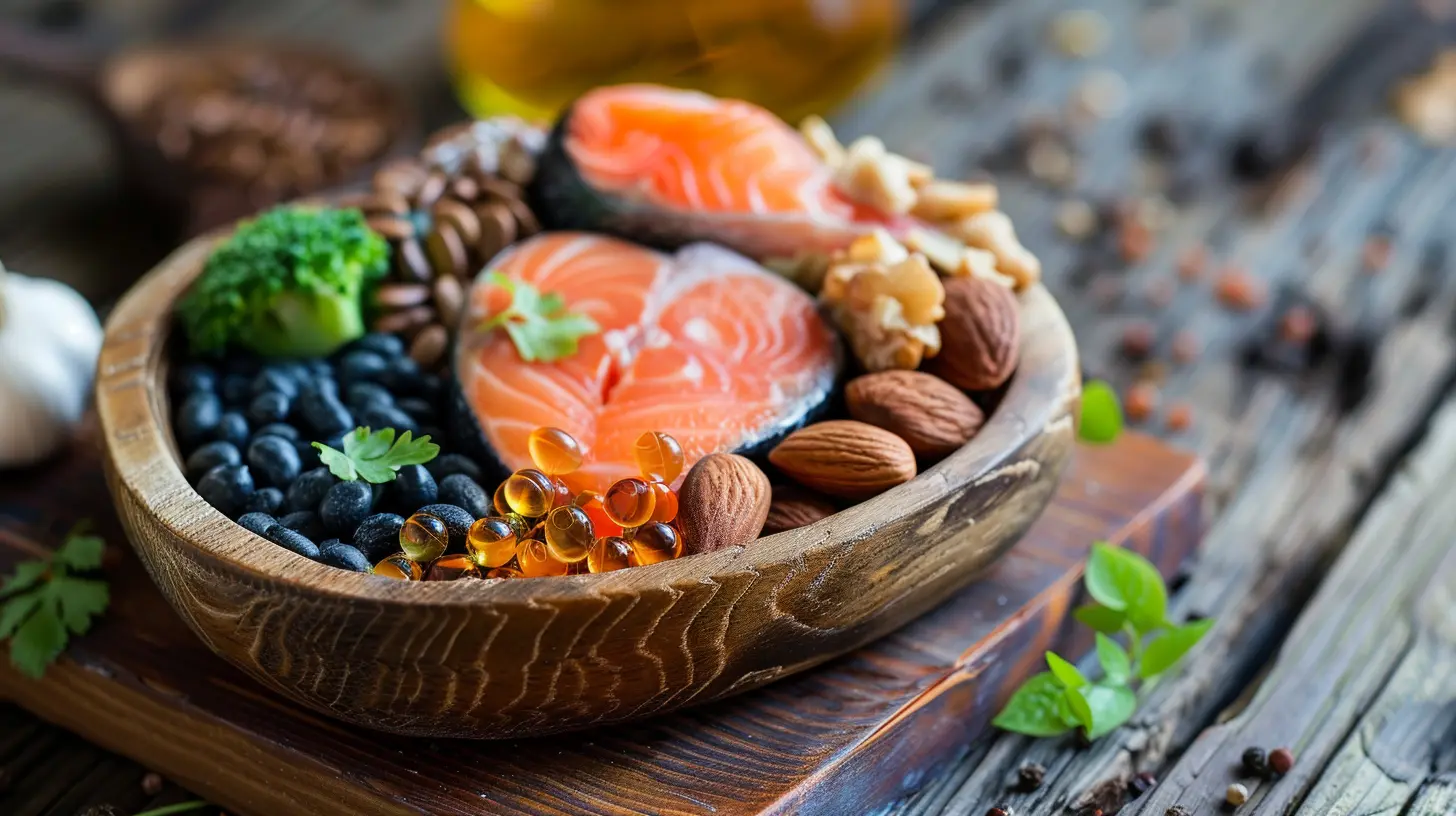The Role of Omega-3 in Protecting Your Heart
9 May 2025
Ever caught yourself wondering why omega-3 keeps popping up in health articles, supplement commercials, and even on food packaging? You’re not alone. These mighty little fatty acids have carved out a heavyweight reputation in the health and wellness world—and for great reason.
When it comes to matters of the heart—not love, but your actual heart—omega-3s are absolute rockstars. They’ve got your back (well, technically, your chest), and today we’re diving deep into how they help protect your ticker and why everyone seems to be raving about them.
What Exactly Are Omega-3 Fatty Acids?
Let’s start simple. Omega-3 fatty acids are essential fats—your body needs them but can’t make them on its own. So, unless you’re a plant or a fish (and I’m guessing you’re neither), you’ve got to get them through food or supplements.There are three major types you’ll hear about:
- ALA (Alpha-linolenic acid): Mostly found in plant oils like flaxseed, chia seeds, and walnuts.
- EPA (Eicosapentaenoic acid): Found in fatty fish like salmon, sardines, and mackerel.
- DHA (Docosahexaenoic acid): Also found in fatty fish, and especially important for brain and eye health.
Let’s break it down further.
ALA is like the raw material. Your body can use a tiny bit of it to make EPA and DHA, but it’s not super efficient at doing that. That’s why getting EPA and DHA directly from fish or high-quality supplements is a better bet if heart health is your goal.
Why Your Heart Loves Omega-3s
If your heart could talk, it would probably write omega-3s a love letter. These fats have a solid track record in keeping your cardiovascular system humming smoothly. Here’s how they do it:1. Lowering Triglyceride Levels
Think of triglycerides as fat floating around in your blood. Too much of it? That’s trouble. High triglycerides can contribute to hardening of the arteries, increasing the risk of heart attack and stroke. Omega-3s, especially EPA and DHA, have been shown to lower triglycerides in the blood significantly. That’s like taking extra traffic off a congested freeway—everything flows better.2. Reducing Inflammation
Inflammation isn’t always bad—your body uses it to fight infection. But when it sticks around too long, it becomes a sneaky culprit that damages your arteries and leads to heart problems. Omega-3s act like peacekeepers, calming down chronic inflammation and protecting the lining of your blood vessels.3. Preventing Arrhythmias
Your heart’s rhythm isn’t just for dancing; it’s essential for pumping blood properly. Omega-3s help stabilize your heart's electrical activity, reducing the risk of dangerous arrhythmias (that’s a fancy word for irregular heartbeat). It’s like a natural metronome, helping your heart keep the beat.4. Lowering Blood Pressure
High blood pressure? That’s like asking your heart to push harder every time it pumps. Over time, that pressure can wear your heart out. Omega-3 fatty acids help relax your blood vessels and reduce overall blood pressure. Your heart gets to take a much-needed breather.5. Keeping Arteries Clear
Omega-3s help prevent the build-up of plaque—a waxy substance that can clog your arteries and lead to serious issues like strokes and heart attacks. They also make platelets (cells that help your blood clot) less sticky, reducing the chances of clots forming in the first place.
How Much Omega-3 Do You Need?
This is the million-dollar question, right?The American Heart Association recommends eating at least two servings of fatty fish per week. That’s roughly 500mg/day of EPA and DHA for general heart health.
But if you have high triglycerides or other heart issues, your doctor might suggest a higher dose, usually in the range of 1,000 to 4,000 mg daily. Always best to chat with your healthcare provider before diving into mega-doses.
Omega-3-Rich Foods to Add to Your Plate
No need to guess—here’s a quick cheat sheet of omega-3 superstars:Fatty Fish (Top Sources of EPA & DHA)
- Salmon- Mackerel
- Sardines
- Tuna
- Herring
- Anchovies
Plant-Based Hits (High in ALA)
- Flaxseeds (ground is best for absorption)- Chia seeds
- Walnuts
- Hemp seeds
- Brussels sprouts (yes, seriously!)
Want a double win? Drizzle some flaxseed oil over your salad or blend chia seeds into your smoothie—nutritious and delicious.
What About Supplements?
Fish oil supplements are the go-to for many, especially if fish isn’t your thing. And there’s algae oil for vegetarians and vegans, which delivers DHA and a bit of EPA too.When choosing a supplement, check for:
- High EPA and DHA content per serving (not just total fish oil)
- Molecular distillation for purity
- Third-party testing for quality (look for labels like IFOS or USP)
Just remember, more isn’t always better. Too much omega-3 can lead to thinning of the blood, which might be risky if you’re already on blood thinners.
How Fast Do Omega-3s Work?
Thinking about starting an omega-3 supplement or adding more fish to your diet? You might be wondering when the magic kicks in. While you won’t feel an instant heart-race or butterflies, the benefits are quietly hard at work behind the scenes.Most people see positive changes in triglycerides and inflammation after about 4 to 12 weeks of regular intake. But the real power of omega-3s lies in their long-term role in disease prevention.
It’s not a sprint—it’s a marathon. Consistency is key.
Omega-3 Myths You Should Ignore
Let’s bust a few myths, shall we?Myth #1: Omega-3s Don’t Really Help with Heart Health
Countless studies disagree. While headlines might flip-flop, the consensus among major heart organizations is simple: omega-3s, especially from oily fish, play a critical role in heart health.Myth #2: You Can Get Enough Omega-3s from All Plant Sources
Yeah, plant-based ALA is great—but remember, your body isn’t great at turning it into EPA or DHA. If you’re vegan or vegetarian, opt for algae-based DHA supplements to cover your bases.Myth #3: More Is Always Better
High doses without medical supervision? Not a good idea. Stick to recommended guidelines and talk to your doc if you’re thinking about high-potency supplements.Omega-3s and Mental Health: A Surprising Heart Connection
Your brain and your heart? They're tight. Newer research shows that omega-3s don’t just help your heart—they may boost mood, sharpen memory, and reduce depression symptoms. Healthier heart, happier mind? Sign us up.Making Omega-3 Part of Your Routine
Here’s the thing: omega-3s don’t work in isolation. Pair them with a heart-healthy lifestyle—more veggies, less processed food, movement every day, quality sleep, and stress management. Think of it as a team effort.If fish isn’t your favorite, there’s still hope. Smoothies, stir-fries, and even baked goods can be “omega-3’d” up by adding flaxseed or chia. You’ve got options!
Final Thoughts: Show Your Heart Some Love
Your heart beats around 100,000 times a day—yep, you read that right. It’s working hard, day in and day out, to keep you moving, laughing, loving, living. Doesn’t it deserve a little TLC?Omega-3 fatty acids, while simple in structure, are powerful allies in keeping that beat steady and strong. Whether you’re biting into a grilled salmon filet or popping a quality fish oil capsule, every little bit adds up.
So, go ahead—give your heart the nourishing hug it deserves. Omega-3s might just be your heart’s new best friend.
all images in this post were generated using AI tools
Category:
Heart HealthAuthor:

Arthur McKeever
Discussion
rate this article
4 comments
Finn Hurst
Thank you for this informative article on Omega-3's role in heart health. Your insights highlight the importance of incorporating these essential fatty acids into our diets for better cardiovascular protection. I look forward to exploring more on this topic!
May 31, 2025 at 2:59 AM

Arthur McKeever
Thank you for your kind words! I'm glad you found the article informative. Omega-3s truly are vital for heart health. Happy exploring!
Karly Ramos
Thank you for shedding light on the heart-healthy benefits of Omega-3. It's a gentle reminder of how small dietary changes can significantly impact our well-being.
May 18, 2025 at 3:57 AM

Arthur McKeever
You're very welcome! I'm glad you found the information helpful. Small changes can indeed make a big difference!
Elara McEachern
Heart health made easy!
May 16, 2025 at 4:08 AM

Arthur McKeever
Thank you! Omega-3 really does simplify heart health.
Edith Morgan
Fascinating insights! I'm eager to learn more about how omega-3s impact heart health in everyday life.
May 11, 2025 at 2:37 PM

Arthur McKeever
Thank you! Omega-3s can help reduce inflammation, lower blood pressure, and improve cholesterol levels, all of which contribute to better heart health. I'm glad you're interested in learning more!



